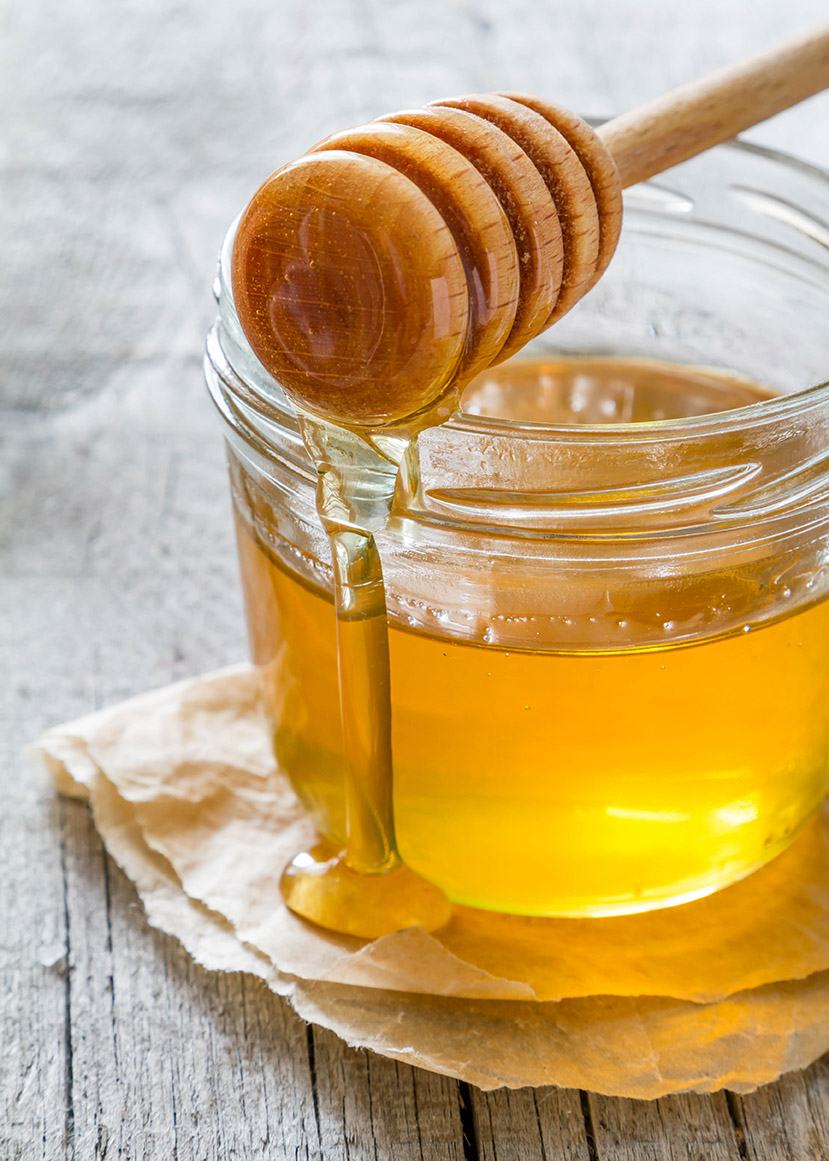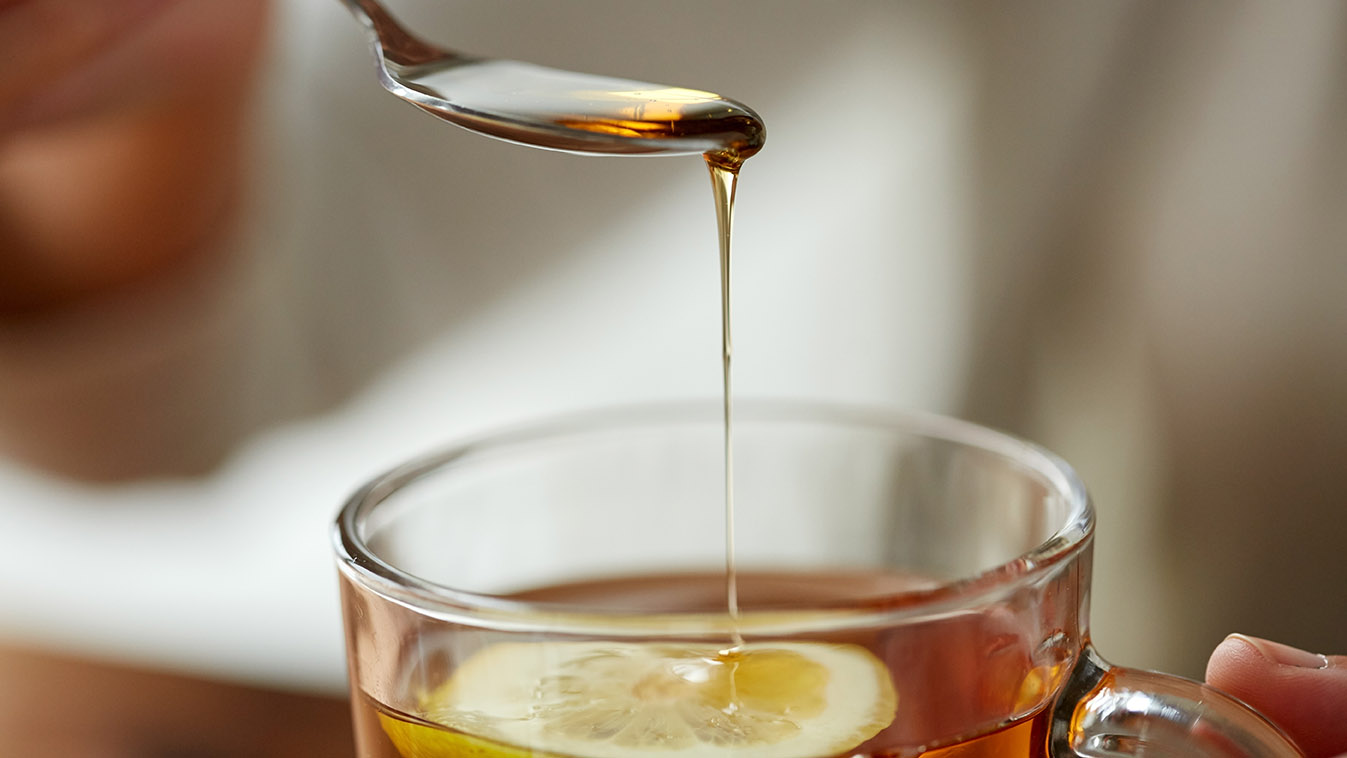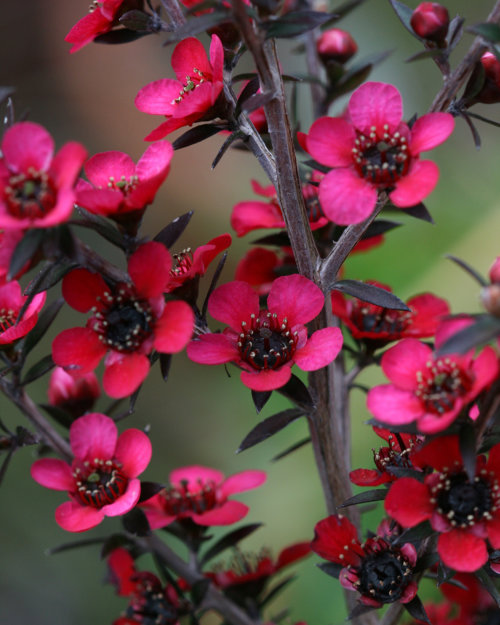
Everything You Need To Know About Manuka Honey
Sometimes plants have such powerful healing properties that even the products made by animals who consume them can have powerful medicinal qualities. This is the case with manuka honey—a potent strain of high-nutrient honey that comes from bees who pollinate the manuka bush (Leptospermum scoparium), also known as the New Zealand Tea Tree.
A few years ago when I was living in New Zealand, I encountered manuka honey for the first time– natural food stores were raving about the mind-boggling medicinal benefits to this “superior” grade of local honey, and I came to incorporate it into my diet, adding it as my preferred sweetener to tea and yogurt while indulging in the occasional face mask made with local kiwi, manuka honey, and avocado (an amazing skin-softening recipe for another time).
Since returning to the States, I’ve noticed that the rest of the world seems to have caught on: manuka honey is one of the most healing honeys in the world, which has long been used by the native Maoris as a treatment for colds and wounds– but now every medical journal and beauty magazine seemed to be espousing its health benefits.
With eight times the antibacterial properties of normal honey, manuka honey can be used in wound and burn healing, to enhance immune function and reduce cholesterol levels, to treat acne and damaged skin, and to prevent bad breath, sore throats, and gastritis– and these are all facts chalked up even in the world of western medicine, where “natural remedies” are often met with resistance. The cosmetic world, however, has long embraced the trend, and now produces pharmaceutical-grade lotions and other topical products that aim to treat an array of skin ailments. Medical grade manuka honey is often used as an ingredient in skin creams to help nourish dry, sensitive, and eczema-prone skin.
Still, because of industrial food processes of modern living in the West, most honey is less potent than what it should be, often because it is refined (e.g. treated with heat) before it is sold. This, in turn, “cooks” most of the nutrients out of conventional honey before it is even bottled. While there are now about 300 varieties of flower honey available worldwide, manuka honey boasts what is by far the best nutritional profile of them all, with 4 times the nutritional content of normal flower honeys, and a significantly advantageous resistance to heat and light.
When raw and unfiltered, manuka honey is a reliable source of amino acids, B vitamins (B6, thiamin, niacin, riboflavin, pantothenic acid), calcium, copper, iron, magnesium, manganese, phosphorus, potassium, sodium, zinc, and trace amounts of hydrogen peroxide (which accounts for its particular antimicrobial properties).

In order to measure the potency of these nutrients, manuka honey is rated with what is known as the Unique Manuka Factor or UMF, which is a global standard for identifying and measuring the antibacterial strength of the honey while ensuring its medicinal quality. The minimum ranking is UMF+5, while anything UMF+16 and above is considered superior quality (which is why it is so expensive, often garnering up to $50 a jar).
UMF certification means that the nutrients in the honey are extremely stable, unlike the nutrients in most other flower honey, which can easily be destroyed by heat and light. (This, incidentally, is why it’s best not to add honey to tea or other hot drinks until they have cooled slightly– otherwise you cook away the nutrients and are left with simple sugars).
Below are the best ways to maximize the health benefits of manuka honey, as tried and tested by the GC team. Read on for our collective health tips below, and check out our related post on the incredible health benefits of bee pollen.
To Help Heal Wounds
Research suggests that the topical use of manuka honey “leads to improved wound healing in acute cases, pain relief in burn patients, and decreased inflammatory response in such patients.” Because federal law in New Zealand prohibits the treatment of honey bees with antibiotic drugs, there are very few bee diseases in New Zealand, which leads to safe and secure (not to mention pathogen-free) honey. Most natural food stores including Whole Foods have some form of manuka honey salve that can be used to treat cuts, rashes, burns and other abrasions naturally, without petro-chemicals like those found in conventional bacitracin.
As an Anti-Viral Immunity Booster
In 2007, data published in the Journal of Leukocyte Biology suggested that “a 5.8-kDa component of manuka honey stimulates immune cells via TLR4.” In other words: manuka stops the growth of sore throat-causing Strep bacteria, among other bacterial respiratory diseases. In these instances, a teaspoon of manuka honey can be taken raw as a supplement (try putting it on toast or in your tea if you are feeling sick).

As Oral Care
The School of Dentistry at the University of Otago in Dunedin, New Zealand recently discovered that chewing or sucking on a manuka honey product not only caused a 35% decrease in plaque, but it led to a 35% reduction in bleeding sites in people suffering from gingivitis. Incidentally, calcium, zinc, and phosphorus are all important nutrients for healing teeth, and manuka honey boasts each of these nutrients in spades. Natural food stores often supply manuka honey hard candies, gum, and other supplemental treats in the personal care section.
Anti-Inflammatory and Allergy Help
Like all raw, unpasteurized flower honey, manuka honey makes an excellent natural anti-histamine. A study whose results are archived in the US National Library of Medicine once demonstrated that patients reported “a 60% lower total symptom score, twice as many asymptomatic days, and 70% fewer days with severe [allergy] symptoms” when taking a manuka honey supplement, and they used 50% fewer antihistamines compared to the control group when taking honey as a supplement. For those with really intense seasonal allergies, taking manuka honey on a regular basis can lessen the need for medication. To test the efficacy, try taking half the dose of your normal allergy medication and supplementing the rest with a daily dose of manuka honey. A spoonful of (natural) sugar helps the medicine go down.
Internally
Regular doses of manuka honey have been shown to reduce acid reflux, to balance digestive systems, and to heal stomach and intestinal imbalances. In case the allergy relief, immunity boost, topical skin benefits, and wound-healing capacity weren’t enough, this is just one more reason to add a little dollop of this miracle sweetener to your tea.


































